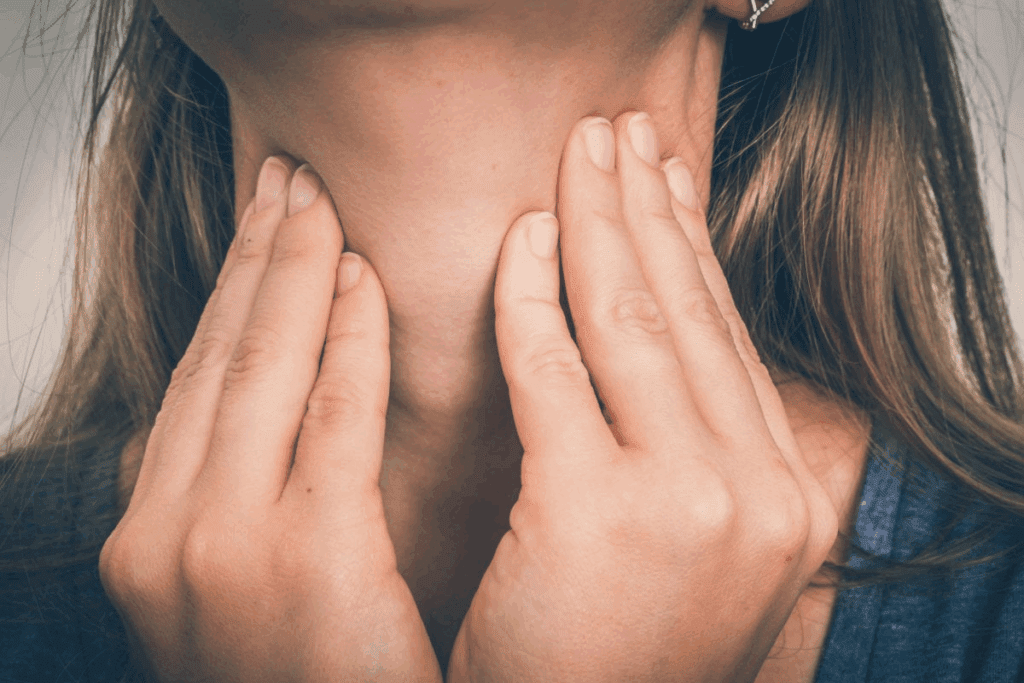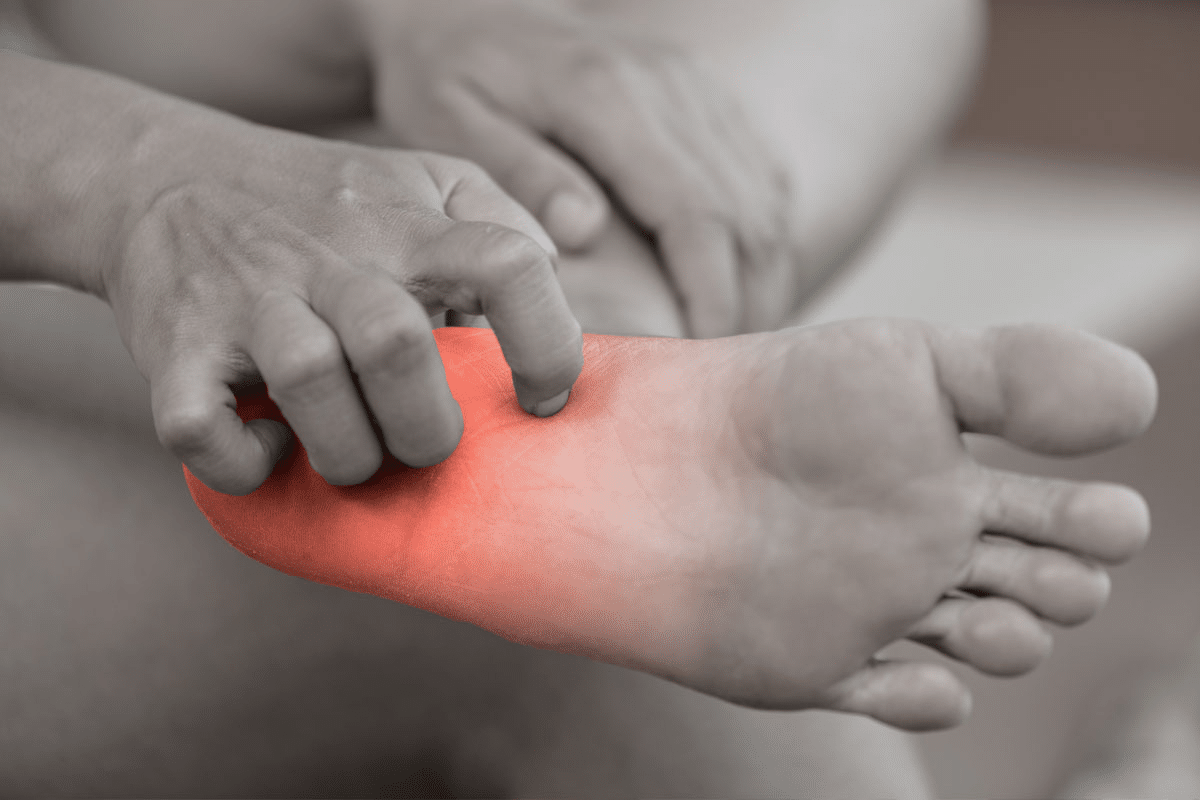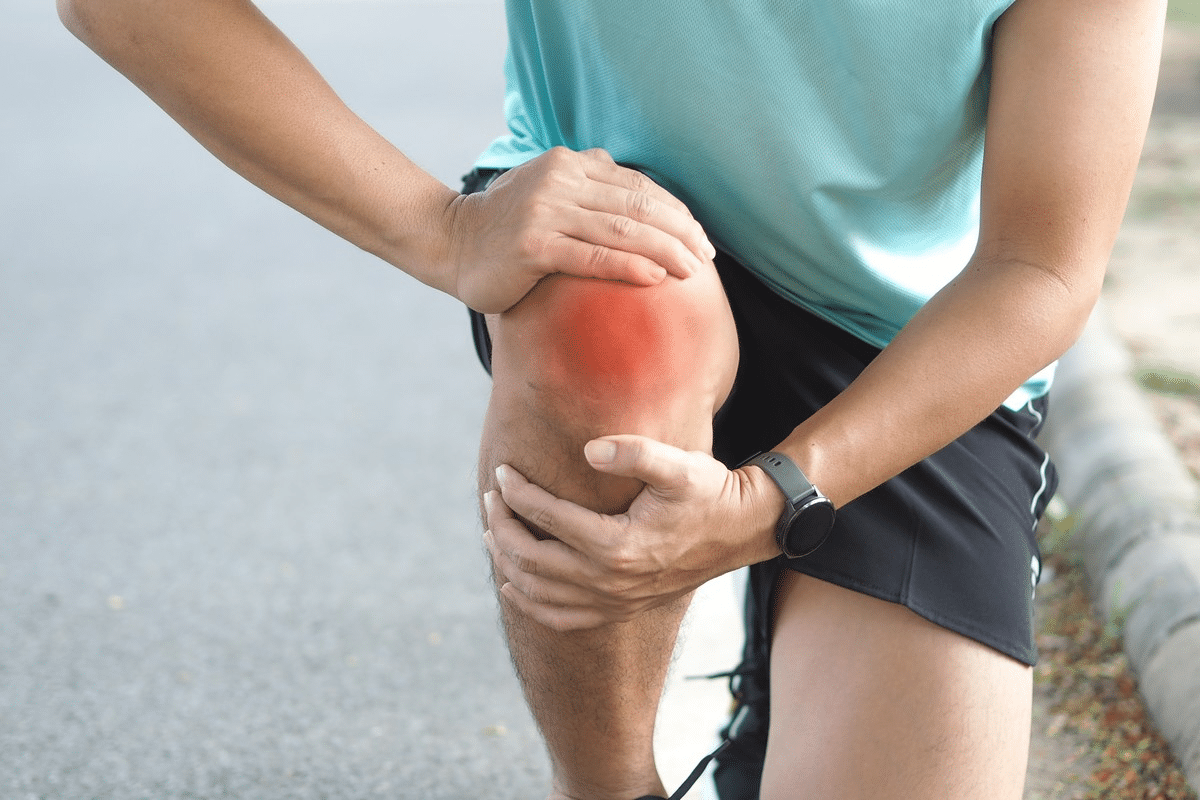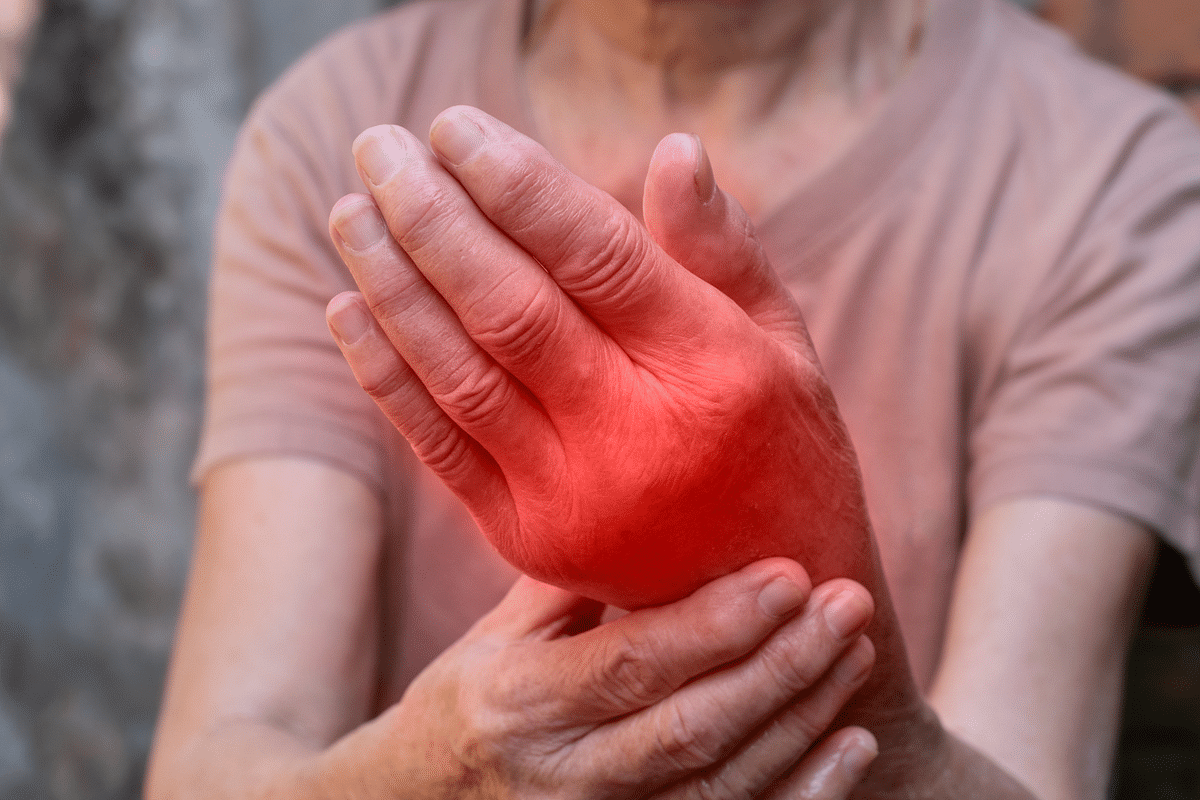
Feeling pain in both your jaw and throat can be puzzling. TMJ disorder and tonsillitis are common reasons. We’ll explore these causes and how to manage them.
Why do I have an aching jaw and throat at the same time? Learn about common causes like tonsillitis, ear infections, and TMD.
The Connection Between Jaw and Throat Pain
The jaw and throat are closely linked by the glossopharyngeal nerve. Problems in one can cause pain in the other.
Knowing how they are connected helps doctors diagnose and treat pain better.
How Common is Simultaneous Jaw and Throat Pain?
Many people experience pain in both their jaw and throat. Studies show that about 33% of adults have jaw pain. Also, 25% of adults have throat pain at some point.
The temporomandibular joint (TMJ) is key for jaw movement. Problems with this joint can cause pain in the jaw and throat. TMJ disorders are a common reason for this pain, caused by teeth grinding, misaligned teeth, or other issues.
Knowing how common and why jaw and throat pain happen is important. It helps in finding the right treatment. Recognizing the signs can lead to getting the right care and relief from pain.
Understanding the Link Between TMJ Disorders and Throat Pain

TMJ disorders can lead to jaw pain, clicking sounds, and trouble chewing. But, they can also cause throat pain. This is not as well-known.
The Anatomy Behind TMJ-Related Throat Pain
The TMJ connects the jawbone to the skull. It has nerves, like the trigeminal nerve, that send pain signals. When the TMJ is inflamed, it can send pain to the throat.
Studies show that TMJ disorders and throat pain are linked through shared nerves. The vagus nerve, which affects the neck and throat, can send pain to the throat when it’s irritated.
Symptoms and Diagnosis
Symptoms of TMJ-related throat pain include a dull ache or sharp pain in the throat. You might also have trouble swallowing or feel tightness in your neck. Doctors use physical exams, medical history, and imaging like X-rays or MRIs to diagnose.
Treatment Options
Treatment for TMJ-related throat pain includes pain management, physical therapy, and lifestyle changes. Sometimes, surgery is needed to fix nerve compression or other issues.
Bacterial Infections and Their Impact
Bacterial Infections and Jaw Pain
Strep throat is a bacterial infection that can cause jaw pain. This connection is well-known and important for diagnosis and treatment.
The Link Between Strep Throat and Jaw Pain
Strep throat is caused by Group A Streptococcus bacteria. This bacteria can make the throat and jaw inflamed and painful. Symptoms include fever and swollen lymph nodes.
Symptoms and Treatment
Symptoms of strep throat include a sore throat and fever. Treatment often includes antibiotics. Pain management is also key to reduce discomfort.
Understanding the link between strep throat and jaw pain helps get timely medical help. This ensures effective treatment.
Tonsillitis: A Common Culprit
Tonsillitis is when the tonsils get inflamed. This can lead to a lot of pain, including jaw pain. It’s often caused by a virus or bacteria.
How it’s treated depends on what’s causing it. If it’s a bacterial infection, doctors might prescribe antibiotics. For viral cases, they focus on managing symptoms.
Sinusitis and Its Effects on the Jaw and Throat
Sinusitis makes the sinuses inflamed, leading to face pain, headaches, and breathing trouble. It can also hurt the jaw and throat, causing discomfort.
Understanding Sinusitis
Sinusitis is usually caused by viruses or bacteria. It can be short-term or long-lasting. It makes mucus build up, causing pain and discomfort.
Symptoms of Sinusitis
Sinusitis symptoms vary but often include:
- Pain and pressure in the face, mainly in the cheeks and forehead
- Nasal congestion and trouble breathing
- Headaches and feeling tired
- Thick yellow or green nasal discharge
The Connection Between Sinusitis and Jaw/Throat Pain
The sinuses are near the jaw and throat. Inflammation here can cause pain in these areas. Sinusitis can make eating, drinking, or swallowing hard.
Managing Sinusitis and Jaw/Throat Pain
To handle sinusitis and jaw/throat pain, seeing a doctor is key. They might prescribe antibiotics, pain meds, or nasal sprays. Sometimes, surgery is needed to drain the sinuses.
Knowing how sinusitis affects the jaw and throat helps manage symptoms. If symptoms last or worsen, seeing a healthcare professional is vital for the right treatment.
Understanding Aching Jaw and Throat Through Nerve Pathways
The glossopharyngeal nerve and the trigeminal nerve work together. They are key to understanding jaw and throat pain at the same time.
Other Medical Conditions Causing Simultaneous Pain

Many medical conditions can cause pain in both the jaw and throat. These include infections, structural issues, and gland disorders in the neck. They can make diagnosis tricky.
Dental Infections and Abscesses
Dental infections and abscesses are serious and painful. Bacteria can infect the tooth pulp or surrounding tissues, leading to an abscess. This causes severe pain, swelling, and sometimes fever.
Symptoms include:
- Severe, persistent, throbbing toothache that can radiate to the jawbone, neck, or ear
- Sensitivity to hot and cold temperatures
- Pain or discomfort when chewing or biting
- Swollen, red gums
- Fever
- Swollen lymph nodes under the jaw or in the neck
Eagle Syndrome and Styloid Process Elongation
Eagle syndrome is caused by an elongated styloid process or calcified stylohyoid ligament. The styloid process is a bony projection below the ear. It can press on nerves and structures, causing jaw and throat pain.
Symptoms include:
- Pain in the jaw, throat, or ear
- Difficulty swallowing
- Sensation of a foreign body in the throat
- Pain when turning the head
| Condition | Primary Symptoms | Common Causes |
| Dental Infections | Severe toothache, swelling, fever | Bacterial infection |
| Eagle Syndrome | Jaw, throat, or ear pain, difficulty swallowing | Elongated styloid process or calcified stylohyoid ligament |
| Salivary Gland Disorders | Pain or swelling in the salivary gland area, dry mouth | Infection, stones, or tumors |
Salivary Gland Disorders
Salivary gland disorders can also cause jaw and throat pain. These include infections, stones, and tumors. They can lead to pain or swelling in the gland area and dry mouth.
Symptoms include:
- Pain or swelling in the salivary gland area
- Dry mouth
- Difficulty opening the mouth
- Pain when eating or drinking
Understanding these conditions helps us diagnose and treat jaw and throat pain better.
Lifestyle Factors Contributing to Jaw and Throat Pain
Stress and poor posture can lead to jaw and throat pain. When we’re stressed, our muscles tighten, causing strain in the jaw and neck. This strain can make simple tasks hard.
Changing our lifestyle can help ease jaw and throat pain. Techniques like meditation or deep breathing can lower muscle tension. Also, keeping a good posture is key to reducing strain on these areas.
Drinking enough water is also important for health and can help with jaw and throat pain. Water keeps muscles and joints lubricated, which can prevent pain.
Making small changes in our daily habits can lower the risk of jaw and throat pain. This includes practicing good posture, managing stress, and staying hydrated.
Diagnosing the Cause of Your Aching Jaw and Throat
To find out why your jaw and throat hurt, doctors look at your medical history, do a physical check, and run tests.
Many things can make your jaw ache, like TMJ disorders, tonsillitis, or throat infections. The right treatment depends on what’s causing the pain. It might include medicine for pain, therapy, or changes in how you live.
Treatment Options for Combined Jaw and Throat Pain
When you have both jaw and throat pain, a detailed treatment plan is key. This plan might include medicines, physical therapy, and changes in your lifestyle.
Medications
Over-the-counter pain relievers like ibuprofen can ease pain and swelling. Sometimes, you might need prescription drugs to treat the root cause.
Physical Therapy
A physical therapist can design a special exercise plan. This plan aims to boost jaw movement and strengthen neck and throat muscles.
By tackling the causes of jaw and throat pain, you can find relief. This is done through a mix of medical treatments and lifestyle adjustments.
Conclusion: Prevention and Long-Term Management
Managing jaw and throat pain needs a full plan. This includes preventing it, making lifestyle changes, and getting medical help when needed. Knowing why jaw and throat pain happens helps us take steps to avoid it and ease the symptoms.
Good oral hygiene, managing stress, and a healthy lifestyle can stop jaw and throat pain from coming back. Also, seeing healthcare professionals regularly can catch problems early. This way, we can avoid severe issues.
FAQ
What are the common causes of simultaneous jaw and throat pain?
Jaw and throat pain can come from many sources. This includes TMJ disorders, infections, and sinusitis.
How are TMJ disorders related to jaw and throat pain?
TMJ disorders can lead to jaw and throat pain. This is because the TMJ is connected to muscles and nerves around it.
Can sinusitis cause jaw and throat pain?
Yes, sinusitis can cause pain in the jaw and throat. This happens when sinus pressure spreads to these areas.
What is the role of stress in jaw and throat pain?
Stress can make jaw and throat pain worse. It does this by tightening muscles and causing inflammation.
How can I manage jaw and throat pain?
To manage jaw and throat pain, you need a mix of medical help, lifestyle changes, and self-care. This includes good oral hygiene, stress-reducing activities, and avoiding pain triggers.
What are the treatment options for combined jaw and throat pain?
Treatment options include medicines, physical therapy, and lifestyle changes. This can include better posture, avoiding certain foods, and relaxation techniques.
Can jaw and throat pain be a symptom of a more serious condition?
Yes, jaw and throat pain can signal a serious issue. This could be a TMJ disorder or a sinus infection. If the pain is ongoing or severe, see a healthcare professional for help.
How can I prevent jaw and throat pain?
To prevent jaw and throat pain, keep your mouth clean and avoid triggers like stress and certain foods. Also, try relaxation techniques like meditation or deep breathing.
References
National Center for Biotechnology Information. (2025). Why Does My Jaw and Throat Hurt








